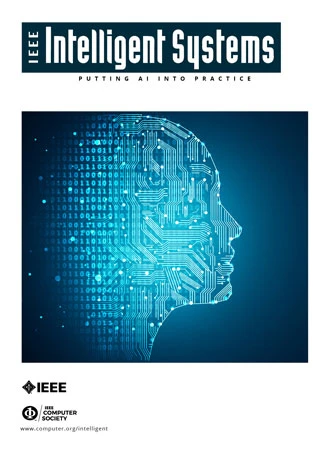通过关键经验点识别进行有效的可解释政策提炼
IF 5.6
3区 计算机科学
Q1 COMPUTER SCIENCE, ARTIFICIAL INTELLIGENCE
引用次数: 1
摘要
可解释策略提炼旨在将深度强化学习(DRL)策略模仿为可自我解释的模型。然而,经过提炼的策略通常不能很好地推广到复杂的任务中。为了研究这一现象,我们研究了DRL任务的经验库,发现这些交互经验分布是重尾的。然而,现有方法在很大程度上忽略了这一关键问题,因此,它们没有完全统一不太频繁但非常关键的经验点。为了解决这个问题,我们建议通过最小经验保留来表征决策边界,以处理重尾经验分布。我们的方法确定了接近模型决策边界的关键经验点,这些经验点更为关键,因为它们描绘了模型采取行动的先决条件。因此,我们的方法将DRL策略提取为一个无神经结构和模糊中间参数的自解释结构。通过在六个游戏上的实验,我们表明我们的方法在累积奖励、稳定性和忠诚度方面优于最先进的基线。本文章由计算机程序翻译,如有差异,请以英文原文为准。
Effective Interpretable Policy Distillation via Critical Experience Point Identification
Interpretable policy distillation aims to imitate a deep reinforcement learning (DRL) policy into a self-explainable model. However, the distilled policy usually does not generalize well to complex tasks. To investigate this phenomenon, we examine the experience pools of DRL tasks and find that these interactive experience distributions are heavy tailed. However, this critical issue is largely ignored by existing approaches, and, thus, they do not fully unitize the less frequent but very critical experience points. To address this issue, we propose characterizing decision boundaries via the minimum experience retention to deal with the heavy-tailed experience distributions. Our method identifies critical experience points that are close to the model’s decision boundaries, and such experience points are more critical because they portray the prerequisite of a model to take an action. As a result, our method distills the DRL policy to a self-explainable structure without a neural structure and ambiguous intermediate parameters. Through experiments on six games, we show that our method outperforms the state-of-the-art baselines in cumulative rewards, stability, and faithfulness.
求助全文
通过发布文献求助,成功后即可免费获取论文全文。
去求助
来源期刊

IEEE Intelligent Systems
工程技术-工程:电子与电气
CiteScore
13.80
自引率
3.10%
发文量
122
审稿时长
1 months
期刊介绍:
IEEE Intelligent Systems serves users, managers, developers, researchers, and purchasers who are interested in intelligent systems and artificial intelligence, with particular emphasis on applications. Typically they are degreed professionals, with backgrounds in engineering, hard science, or business. The publication emphasizes current practice and experience, together with promising new ideas that are likely to be used in the near future. Sample topic areas for feature articles include knowledge-based systems, intelligent software agents, natural-language processing, technologies for knowledge management, machine learning, data mining, adaptive and intelligent robotics, knowledge-intensive processing on the Web, and social issues relevant to intelligent systems. Also encouraged are application features, covering practice at one or more companies or laboratories; full-length product stories (which require refereeing by at least three reviewers); tutorials; surveys; and case studies. Often issues are theme-based and collect articles around a contemporary topic under the auspices of a Guest Editor working with the EIC.
 求助内容:
求助内容: 应助结果提醒方式:
应助结果提醒方式:


